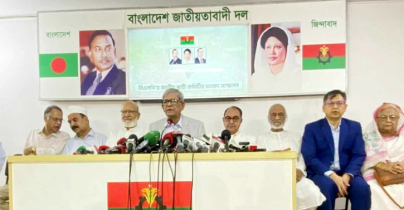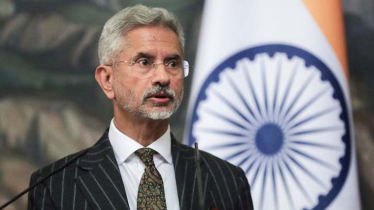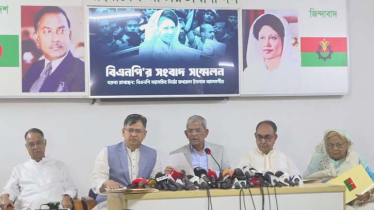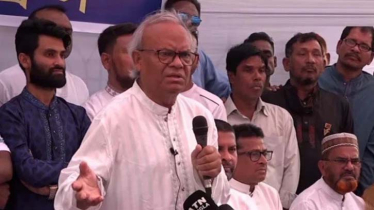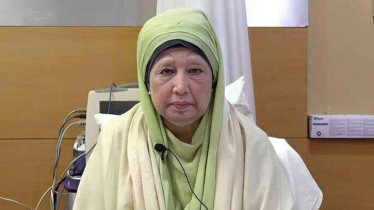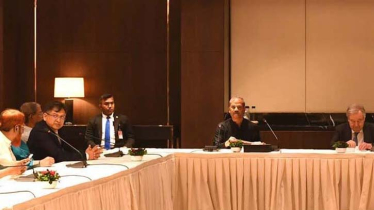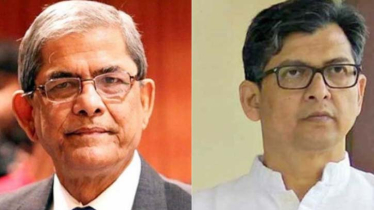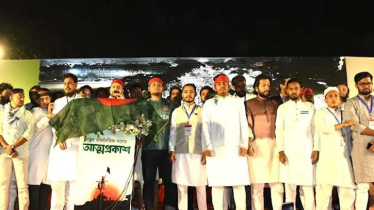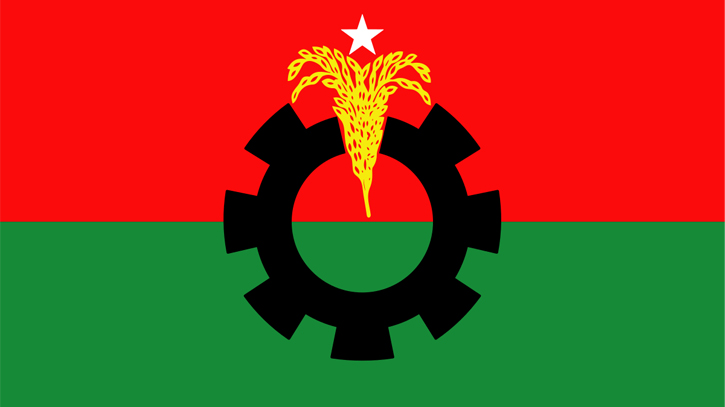
Photo : Collected
After the 12th National Assembly elections, the BNP has resumed its policy of opposing India with renewed vigour.
The party leaders are not only delivering anti-India speeches, but also advocating for the boycott of Indian products. Their relentless pursuit of this agenda has fuelled concerns about the erosion of democracy in the country, with their grievances wielding significant influence.
Questions have arisen whether the BNP is actively following the Maldives' President Mohammad Muizzo model in this case, or such actions are stemming from the party's frustration.
BNP leaders are issuing strategic statements on the matter, while political analysts are asserting that the country's affairs are heavily influenced by foreign powers, as evidenced by the remarks of the leaders of the two major political parties.
The Bangladesh Nationalist Party (BNP), which has been out of power for an extended period, shifted away from its anti-India stance at least two years prior to the 12th parliamentary elections, opting instead to work towards improving relations with India. BNP leaders rationalised this shift by pointing to India's purported open support for the Awami League before the 2014 elections, allegedly pressuring the Jatiya Party to participate in the polls at that time. Despite BNP's efforts to boycott the election through a movement, it failed to achieve success. Subsequently, India was seen as tacitly supporting the ruling party during the 2018 election campaign.
Consequently, BNP leaders concluded that India should, at the very least, refrain from opposing the party, even if it doesn't actively support them. Hence, BNP intensified communication efforts with India ahead of the recent elections.
Sources within the party indicate that prior to the 12th National Assembly elections, the BNP refrained from leveraging its long-time ally Jamaat-e-Islami to garner support from India. Additionally, the party took several measures to capture India's attention. However, despite the strong influence of the West, particularly the United States, in ensuring the elections' fairness and neutrality, India quietly sided with the Awami League. As this stance became apparent just days before the elections, the BNP openly adopted an anti-India stance.
Following the election and the subsequent formation of the government, certain ministers claimed that due to India's backing, no other nation could interfere in Bangladesh's electoral affairs. Conversely, BNP leaders have asserted that India's support has paved the way for a government to be formed in Bangladesh without the genuine consent of the voters. In the aftermath of the recently concluded elections, leaders from both the Awami League and BNP are currently embroiled in a heated exchange of words, engaging in a verbal conflict.
Leaders of the BNP and its affiliated groups organised a protest program at Nayapaltan in the capital, boycotting Indian products. Ruhul Kabir Rizvi, Senior Joint Secretary General of the party, participated in the protest and demonstrated solidarity by discarding an Indian cloak he was wearing. Since then, the BNP's anti-India stance has intensified. Previously, the party's standing committee member, Goyeshwar Chandra Roy, frequently made anti-India statements. Additionally, other parties that boycotted the 12th National Assembly elections along with the BNP have also been advocating for the boycott of Indian products.
There is currently a surge in political discourse surrounding the BNP's anti-India campaign. Many argue that the party's actions stem from a sense of desperation, given its prolonged absence from power. On the other hand, some contend that the BNP holds anti-India sentiments and seeks to emulate the approach of Mohammad Muizzo, the newly elected president of the Maldives. Muizzo's recent victory has drawn attention, particularly due to his stance on India. Before the election, Muizzo pledged to diminish India's influence in the Maldives if feasible, earning him the label of being 'anti-India' by some observers.
BNP Senior Joint Secretary General Ruhul Kabir Rizvi emphasised that the BNP's stance against India holds greater significance which is evident from the speeches of the Awami League leaders regarding India's interference in Bangladesh's politics. He asserted that in a sovereign nation, no patriot would tolerate such interference.
BNP Standing Committee member Goyeshwar Chandra Roy, speaking to The Daily Messenger, remarked that he alone possesses the knowledge of which party leaders attended specific events and their actions therein. However, when questioned about whether the BNP openly holds an anti-India stance, he suggested that the political party should prioritise the wishes of the people. He indicated that a definitive stance on this matter would be determined following discussions in the party's standing committee meeting.
Professor Dilara Chowdhury, a professor and political analyst from the Department of Government and Politics at Jahangirnagar University, expressed to The Messenger that the statements made by leaders of both parties indicate a lack of power among the people of the country. She highlighted that the current political landscape is heavily influenced by foreign countries, rendering commentary on the matter futile. She warned that the repercussions of this situation will have significant and far-reaching consequences for the people.
Messenger/Fameema

